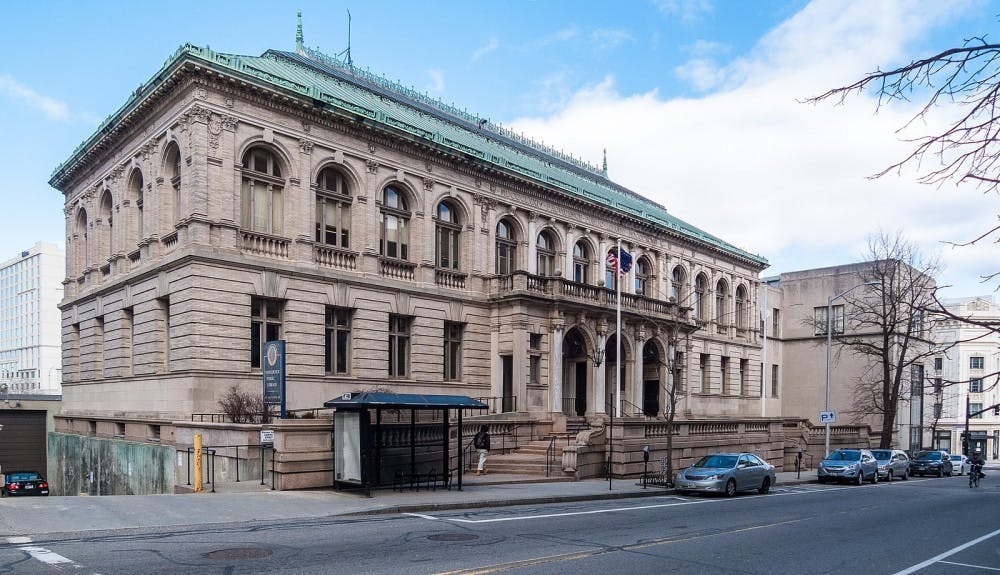The Providence Public Library hosted an online workshop Jan. 14 to spark community discussion on climate change and its varying impacts on people of different socioeconomic backgrounds.
The webinar took place over Zoom as part of a larger pilot program called Resilient Communities: Libraries Respond to Climate Change, which is funded by the American Library Association. Kate Aubin, teen educator at the PPL, said the workshop is part of the PPL’s wider effort to educate adults, teens and children about the effects of climate change.
In September, the association selected the PPL, along with 24 other libraries across the nation, to be part of this pilot program and receive a $1,000 grant to educate their communities about environmental issues. Aubin applied for the grant on behalf of the PPL.
“Libraries are for the lifelong learning of all topics, and climate change and climate resilience are two of the most profound issues that the world is dealing with right now,” said Sarah Ostman, communications manager in the ALA's public programs office.
The program began when Carol and Andy Phelps — a couple passionate about philanthropy and climate change — contacted the ALA and expressed interest in donating money to help libraries create an educational program about the climate crisis, according to Ostman.
Olubunmi Olatunji, program director of Youth In Action and the main speaker at the event, discussed the importance of educating communities about climate change and the power libraries have to raise awareness about the environment. YIA, a R.I.-based group focused on training youth activists, partnered with the PPL for the event to discuss the effects of climate change and environmental justice in Providence and beyond.
Libraries’ “whole motto is trying to be there for their community,” Olatunji said. “When a place like the Providence Public Library says that they want to become a climate resiliency hub, I know that they’re the type of library that wants to do it right.”
Following an introductory quiz on how pollution relates to socioeconomic background, Olatunji led a discussion about the impacts of climate change on housing, immigration and employment. Workshop participants also discussed potential solutions to the climate crisis, including clean energy subsidies and individual dietary changes.
“I don’t think it’s too much to expect our energy companies to start transitioning to solar, especially if directives from Governor Raimondo say that we need to be mostly solar by 2030,” Olatunji said. “It is OK for us as people to expect more from our government, and for our government to expect more of the corporations that are taking advantage of our communities.”
On the program as a whole, Ostman said that “libraries are a natural place to be educating people about climate change and helping them to take action.”
She hopes that the pilot program will inform the ALA on how to expand the Resilient Libraries initiative to include a greater number of libraries in the future. Although Ostman, like Olatunji, believes in the importance of this program, she said that the ALA still needs funding beyond that provided by the Phelpses to expand past the pilot stage.
Upcoming events at the PPL include follow-ups to the Jan. 14 discussion, such as a workshop focused on helping individuals get involved in climate efforts in their own communities, according to Aubin.
“Libraries are uniquely positioned to help with this fight (against climate change) because they are trusted institutions in the community,” she said. “We are places where people can get together for free and learn.”





